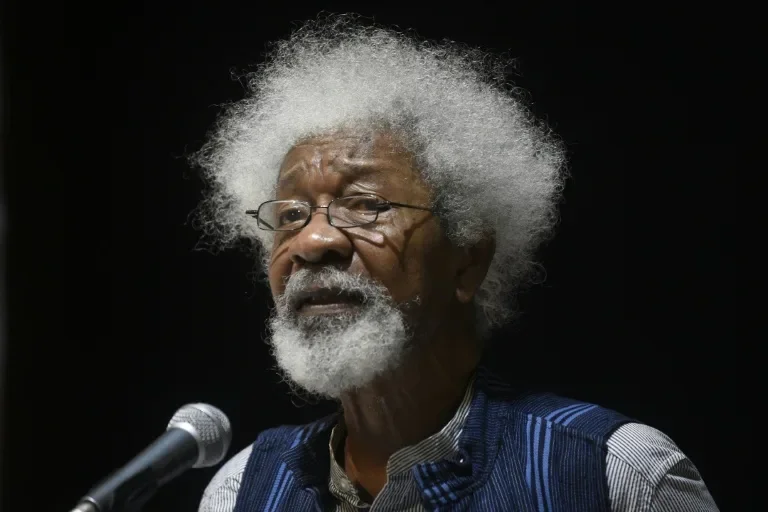Picture a 90-year-old literary giant holding up a single letter that just closed America’s doors to him. That’s the scene in Lagos on Tuesday when Wole Soyinka, Africa’s first Nobel Prize winner in Literature, announced his U.S. visa had been canceled.
Speaking at Freedom Park during a packed event called “Unending Saga: Idi Amin in Whiteface!”, Soyinka didn’t just share the news, he read the official notice word for word.
The document, dated October 23, 2025, from the U.S. Consulate in Lagos, said his B1/B2 visa (for travel and business) was no longer valid. The reason? “New information” discovered after the visa was issued in April 2024.
“This isn’t the end of my story,” Soyinka said with a calm smile. “Any American who wants real talk can visit me right here in Nigeria.”
A Pattern of Bold Moves
This isn’t Soyinka’s first clash with U.S. policy. In 2016, just days after Donald Trump won the election, he tore up his U.S. Green Card on live television.
“I won’t live under hate,” he stated.
That moment went viral. Now, years later, the U.S. has answered, not with words, but with action.
Soyinka believes the visa loss ties directly to his ongoing criticism of Trump’s leadership, especially policies he sees as dividing people.
“I speak as a world citizen,” he explained. “Racism, corruption, lost freedoms, I call them out wherever they rise. If that costs me a visa, so be it.”
The letter’s vague “new information” line sparked questions. Soyinka brushed off wild guesses:
“No crimes. No scandals. Just a lifetime of writing plays and speaking truth.”
He even joked about old airport run-ins, like forgetting a pepper in his bag or arguing with a rude officer decades ago, calling them “tiny moments, nothing more.”
From Prison Cells to World Stages
Wole Soyinka’s life reads like one of his own dramas.
-
Born 1934 in Abeokuta, Nigeria
-
Blended Yoruba myths with political fire in the 1960s
-
Imprisoned 22 months during Nigeria’s civil war
-
Wrote poetry on toilet paper while locked in solitary
He won the Nobel Prize in 1986 for works like “A Dance of the Forests” and “The Bacchae of Euripides”. In America, he taught at Harvard, worked with Henry Louis Gates Jr., and shaped generations of thinkers.
This visa block? It stings but it won’t silence him.
Global Reaction and Bigger Meaning
News exploded online. Writers and rights groups cried foul:
“America claims free speech, then bans its loudest critics?”
Others praised Soyinka’s cool head:
“He turns a slap into a lesson.”
He won’t fight to get the visa back. Instead, he’ll host talks in Nigeria, welcoming scholars and artists to Africa’s creative hub.
Can Words Really Get You Banned?
Soyinka’s case raises a big question:
Should governments punish critics by locking borders?
In a world where visas vanish for students, reporters, and activists, his story hits hard.
“They took my visa,” he said with a grin. “But my voice? That travels free.”
From Lagos to the world, Wole Soyinka proves: words beat walls.
Should free speech cost you a visa? Share your thoughts!
READ ALSO: Tinubu Honored with EuroKnowledge Leadership Award




















